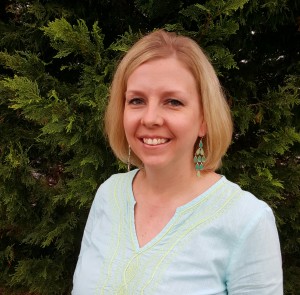As a psychologist who specializes in treating bariatric patients, I’ve worked with many people suffering from post-op addiction issues. Because of the influx of patients I was seeing with cross-addiction, I began to offer a “Bariatric Recovery” group. This group meets on a biweekly basis and offers a mixture of psychoeducation, processing, accountability and support.
I recently asked the participants in this group for feedback about their struggles, including what they would want others to understand about their addiction, advice they would give to others and what has been most helpful in their journey toward recovery. I’ve found in my many years of working with addicts of all types, that they can be our best teachers about the disease they battle.
Here are some of their thoughts:
“No matter how much I would like to stop my behavior, I feel out of control, helpless and ashamed.”
“Even though I am trying, sometimes I cannot control my impulses.”
“Join a counseling group.”
“Don’t try to do it alone.”
“Be honest with yourself.”
“Admit that you need help.”
“Don’t wait to seek help.”
“Others have the same issues you have — you can learn from each other.”
As for learning from others, I will end this series with a case study of one of my long-term patients. Her name and identifying characteristics have been changed to protect her confidentiality. “Lilly” came to me for treatment of binge eating disorder and PTSD many years ago, prior to ever considering bariatric surgery. We addressed both her trauma and her eating disorder for a significant amount of time before the option of bariatric surgery was even explored.
Because Lilly had remitted her binge eating symptoms, but had not lost the amount of weight she hoped to, she and I mutually agreed gastric bypass surgery would be the next right step. Lilly had a brief history of binge drinking during college, but had not consumed any alcohol for well over 10 years. In fact, she had been in an abusive relationship with an alcoholic, and so drinking was a rather aversive behavior to her. I had no concerns of addiction transfer risk for her.
Lilly had RNY gastric bypass and went from 265 pounds to 180 pounds. She was compliant with all aspects of post-operative lifestyle change, and remained in therapy for two more years following her surgery before she “graduated”.
Lilly returned to my practice two years later, with a 20 pound weight regain, significant insomnia, major depression, severe anemia and having periodic seizures. She denied drinking at that time, despite our long-term relationship and strong therapeutic alliance.
Not long into the resumption of therapy, I received a call from Lilly that her primary care physician had admitted her to the hospital to medically detox. I was truly shocked! She had shown up at her doctor’s office with an episode of dangerously high blood pressure and a thiamine deficiency, finally admitting she was drinking a bottle or more of wine per night, combined with sleep medication.
She attributes beginning to drink as a way to cope with post-operative insomnia. One glass of wine became two, and it progressed to the point that she was drinking up to two bottles of wine per night, missing work and having medical issues related to her full-blown alcoholism. I referred her to an inpatient treatment facility specializing in both addiction and trauma. After completing that program, she resumed weekly individual and group counseling on an outpatient basis and became involved in a 12-step program.
Lilly today is now over 10 years post-op and over four years sober. She remains involved in a 12-step program and continues to meet with me on a monthly basis for supportive counseling as part of relapse prevention. Her anemia is resolved, and the rest of her bariatric labs are normal. She has had no more seizures or other medical complications and has lost the weight she regained plus some. In fact, she just reached a major personal milestone of completing her first 10K race, beating the time she set for herself.
Today, Lilly speaks periodically at bariatric support groups regarding the dangers of addiction transfer and offers this message to other patients who may be struggling with similar issues:
“It took hitting my rock bottom to make me seek help through a 12 step program. Through that program, I learned that fear and addiction, whether it is in relation to food, men, alcohol or drugs, had ruled my life and kept me imprisoned. Through recovery, I have learned how to be free. I thought my life was over once I could no longer eat or drink the way I wanted. I realize now that my life did not begin until I got sober”.
About the Author:

Kelly Broadwater, LPA, LPC, CEDS, is the founding co-executive director of The Chrysalis Center for Counseling & Eating Disorder Treatment. As a psychologist and certified eating disorders specialist who is an expert in bariatric psychology, Ms. Broadwater developed the comprehensive aftercare program for bariatric surgery patients offered at her outpatient practice. Her clinical experience includes conducting pre-operative psychological evaluations, providing pre- and post-operative individual counseling and facilitating group therapy for post-surgery patients. Ms. Broadwater frequently speaks on topics related to bariatrics, including co-presenting at the 2015 International Association of Eating Disorder Professionals conference on effective bariatric aftercare. She is an integrated health associate member of the American Society for Metabolic & Bariatric Surgery.

